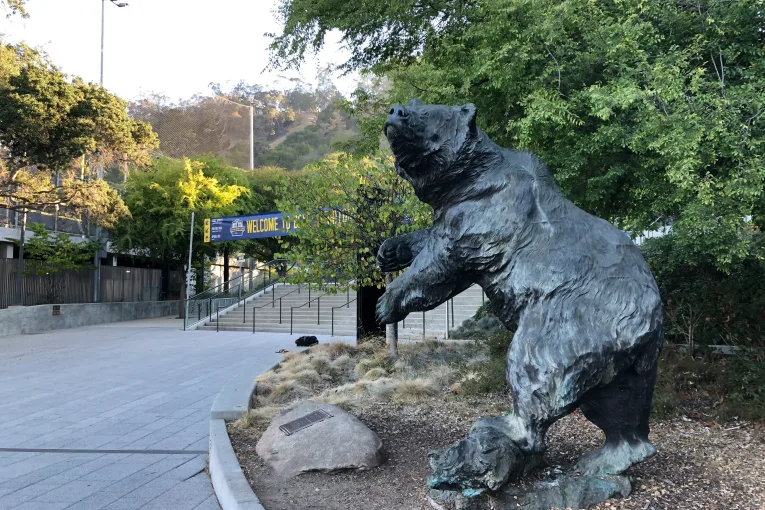As a twenty-year-old adult who’s recently extended baby steps into the consuming jaw of the real world, I’m still entangled in the thin line between the things that matter to me and the things that don’t. In addition to my passion for writing and all things literary, my unabashed tendency to ask for help exactly when I need it is something that I wear on the collar of my everyday existence with demonstrated pride. For some people, this might seem to be a portrayal of internal vulnerability. But, for me, my unfettered call for assistance is possibly the sweetest melody to cross my ears. It has helped me forge the strongest bonds, navigate through the most complex challenges, and gather learnings that will last me over the course of my remaining academic career at UC Berkeley and beyond.
It all began when I took my first upper division English course during my second semester at Cal. As an eighteen-year-old freshman, I looked upon the pursuit of the English Major as a blurry, rainbow-colored visualization of several hours immersed in the core of aesthetic literature. In the fertile soil of my mind, these assumptions were scented with the freshness of brewed coffee and grew with enviable and widely-sprawling confidence that reminded me of the Berkeley Hills. The day before my first lecture, I spent my paycheck on elegant notebooks and handcrafted pens to prepare myself for the joys that awaited me.
While these actions gave me immense pleasure, I think that they took me away from the reality that awaited me. Ominous as this may sound, back then, I didn’t know that the English Major wasn’t going to be a splash pool of easily acquirable joy. It was, instead, going to be a churning sea of raging challenges, and aesthetic stationery wasn’t going to be enough to get through it, especially as an international student who was not used to the analytical rigor that was an essential part of the education system in the United States. The piercing winds of this reality first struck me when I began to attempt my first paper, and couldn’t understand what it meant to create an argument. This was when the piercing winds of academic confusion first struck me. All my attempts at establishing a strong thesis came crashing down, and I found myself blurring the boundaries between a textual observation and a solid thesis.
My reluctance to reach out for help got the better of me, and it was only after receiving a B- on my paper, I found myself outside the door of my Graduate Student Instructor’s (GSI) office to attend my first ever office hours at UC Berkeley. Even though it’s been almost two years since this incident, I must admit how my first experience of asking for help was outlined by the faltering stencil of absolute embarrassment that spiraled around the axis of my ego. To put it simply, I asked for help because I had received a low score that, if not taken care of, would have long-term impacts on my GPA. I did not ask for help because I felt that I wanted—or even needed it.
As the bitter pill of swallowed pride dug its piranha-like jaws into my throat, I entered my GSI’s office. He greeted me with a welcoming smile, and asked me what I would like to talk about. I was surprised to see how the focus wasn’t solely concentrated on the paper or the grade that I had received. My mental health, well being, and adjustment were also of equal importance. “I’ve got a B- and I don’t know what to do about it,” I began, the waves of my deep agony washing over my voice. “That’s okay. I’m sure we can work around it. First, you need to relax,” my GSI responded. On his instruction, I sipped water and took a deep breath, after which we began talking about my paper. That’s when I learned the difference between observing and analyzing literature. The key to a successful thesis was not limited to a mere recognition of linguistic patterns and the identification of literary devices within the space of a text. It wasn’t only about recognizing linguistic patterns and the employment of literary devices within a text. It was also about seeing what they did for the piece, and studying the effects that they had on the narrative.
In the span of less than thirty minutes, my GSI also gave me a hack to test the effectiveness of my thesis, which was the so-what question. If I was making a claim about the text, it was important for me to ask so-what and analyze why my argument actually mattered. As this conversation came to a close, the initial feeling of helplessness that had engulfed my being slowly drifted away. Asking for help didn’t make me vulnerable. Instead, the practice was a powerful surge of sunshine-energy that made me feel quite invincible.
Now, as a Junior at UC Berkeley, I’m happy to state that asking for help or assistance is no longer a lingering last resort in my life. It is instead an illuminated plough that glows with the confident glimmer of an accessible solution. I’m able to use it to turn up the soils of confusion that may dampen my path, and create space to plant the seeds of growth and clarity—however and whenever I need to do so.
